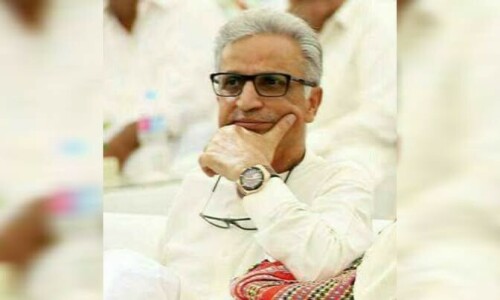ISLAMABAD: To the pleasant surprise of 21 international health delegations, including 17 health ministers, Pakistan appeared to be one of the peaceful destinations unlike the international media portraying it as a challenged security state.
The views of a number of participants of the 64th session of the World Health Organisation (WHO)’s regional committee for the Eastern Mediterranean were positive. The meeting concluded here on Thursday.
For 25 years, the session of the committee could not be conducted in Pakistan mainly because of security reasons. Even this year, there were suggestions to shift the venue to some other country. However, finally it was decided to hold the meeting in Pakistan, the most populated country in the Eastern Mediterranean region.
Dr Ibrahim Kirdani, the spokesperson for the WHO regional office in Cairo, told mediapersons that visiting Pakistan was a totally different experience compared to expectations.
“Islamabad is really a beautiful city and we had a very good impression by visiting the capital of Pakistan. Moreover, not only it was the first visit of a majority of delegates to the country but it was also the first meeting after the election of the WHO director general Dr Tedros Adhanom Ghebreyesus and a number of other office-bearers,” he said.
Minister for National Health Services Saira Afzal Tarar said it was a tough job to hold the meeting in Pakistan.
“Four years back while we were attending the session in an African country I suggested that the next meeting should be held in Pakistan. But I was told that the meeting could not be held in Pakistan for over two decades as the participants did not want to visit the country,” she said.
“Even this year, we received a number of indirect messages that the delegates do not want to visit Pakistan because of the security reasons and the meeting should be held in Kuwait. However, after reaching here the over 200 delegates were impressed with the security situation,” she said.
“The beauty of Islamabad and the pleasant weather also played a vital role in changing the thinking of the delegates,” she claimed.
WHO Regional Director Dr Mahmoud M. Fikri said a roadmap was prepared at the session to address the issues of emergencies, non-communicable diseases, mother and child mortality rates and climate change.
“The issue of tobacco-related diseases and spread of cancer because of it was also discussed. Moreover, national adolescent health has been included in the goals for the first time.”
About polio, Dr Fikri said in 2014 over 300 cases were reported in Pakistan but this year the number was only five which was commendable. Moreover, Pakistan has made hepatitis medicine affordable.
Published in Dawn, October 13th, 2017













































